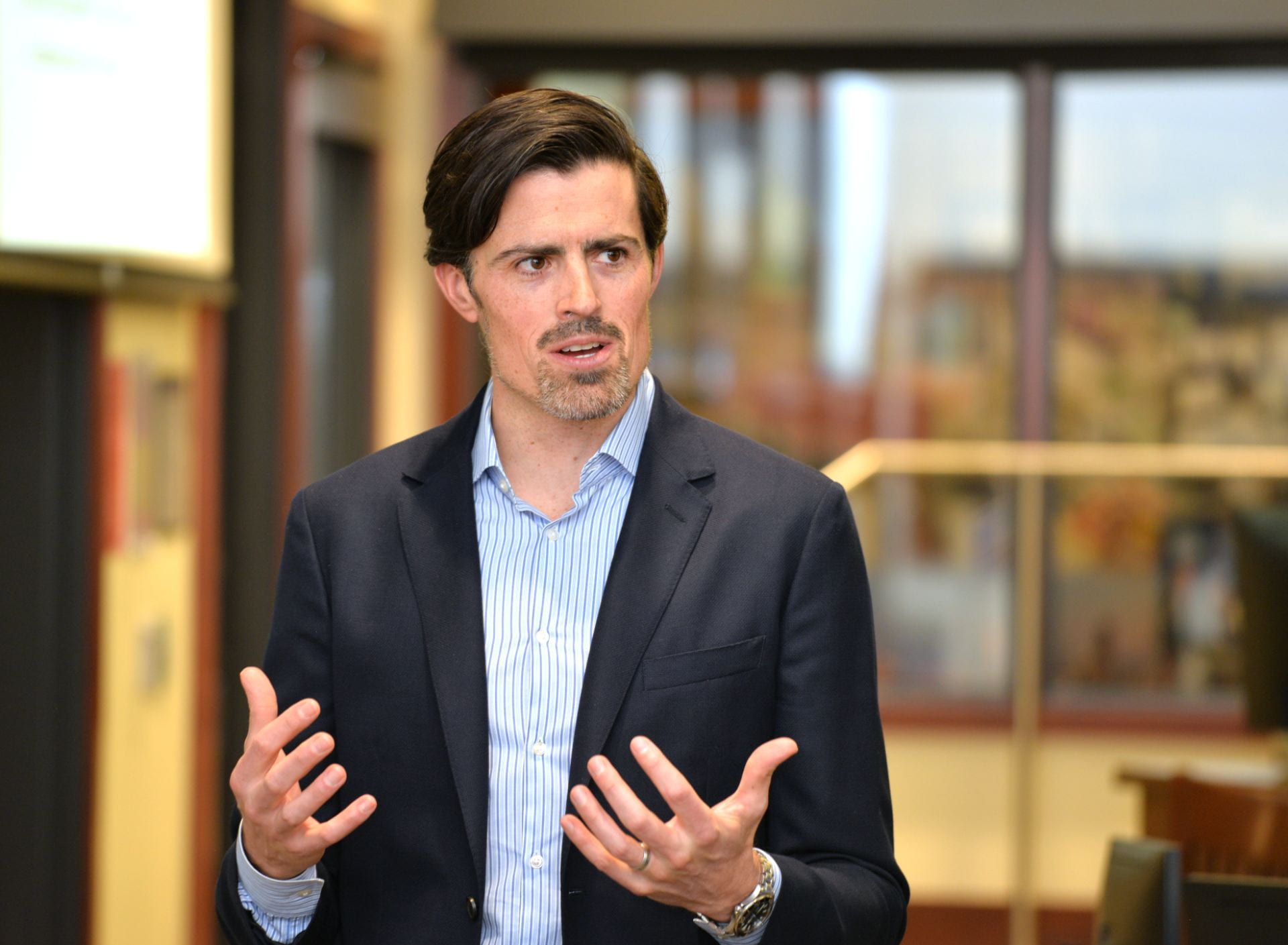Driehaus College of Business alumna Natalie Jaresko (BUS ’87), an American-Ukrainian investment banker who served as Minister of Finance of Ukraine from 2014-2016, returned to DePaul this spring to deliver an impassioned address about the war-torn Eastern European...
Professor Introduces Students to Fintech Innovations
There is a growing understanding of Fintech’s potential to transform the future of finance.” – Associate Professor of Finance Lamont Black Four years ago, Associate Professor of Finance Lamont Black had the foresight to co-host a two-day workshop for business and...
Accounting Graduate Brews Coffee Business with Soul
Leticia Hutchins’ four-year-old coffee business has been 500 years in the making. “My family has been coffee farming in Honduras for five generations,” explains Hutchins (BUS ’16), cofounder of Alma Coffee, a Georgia-based coffee roaster and importer. “For generations...


